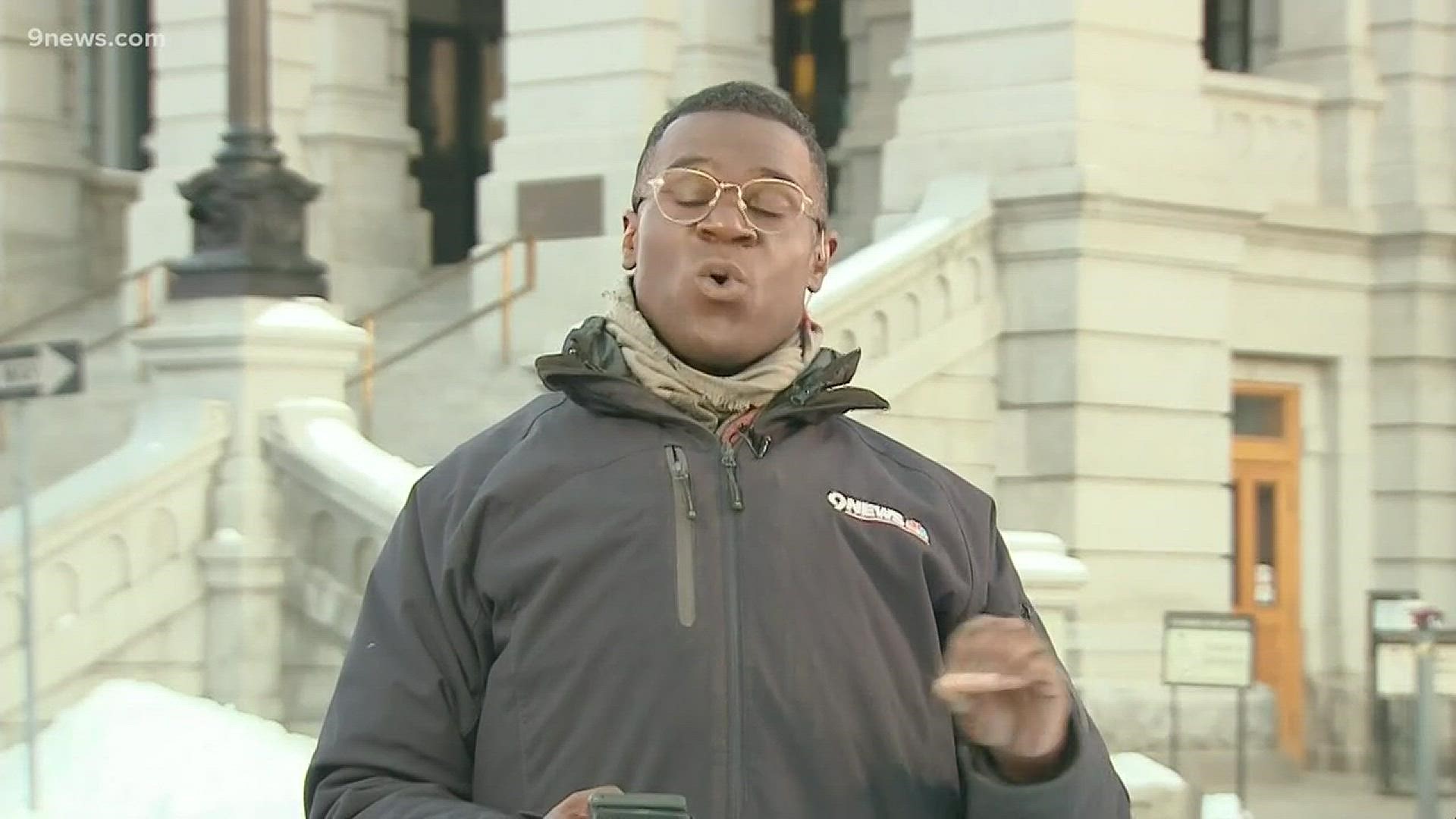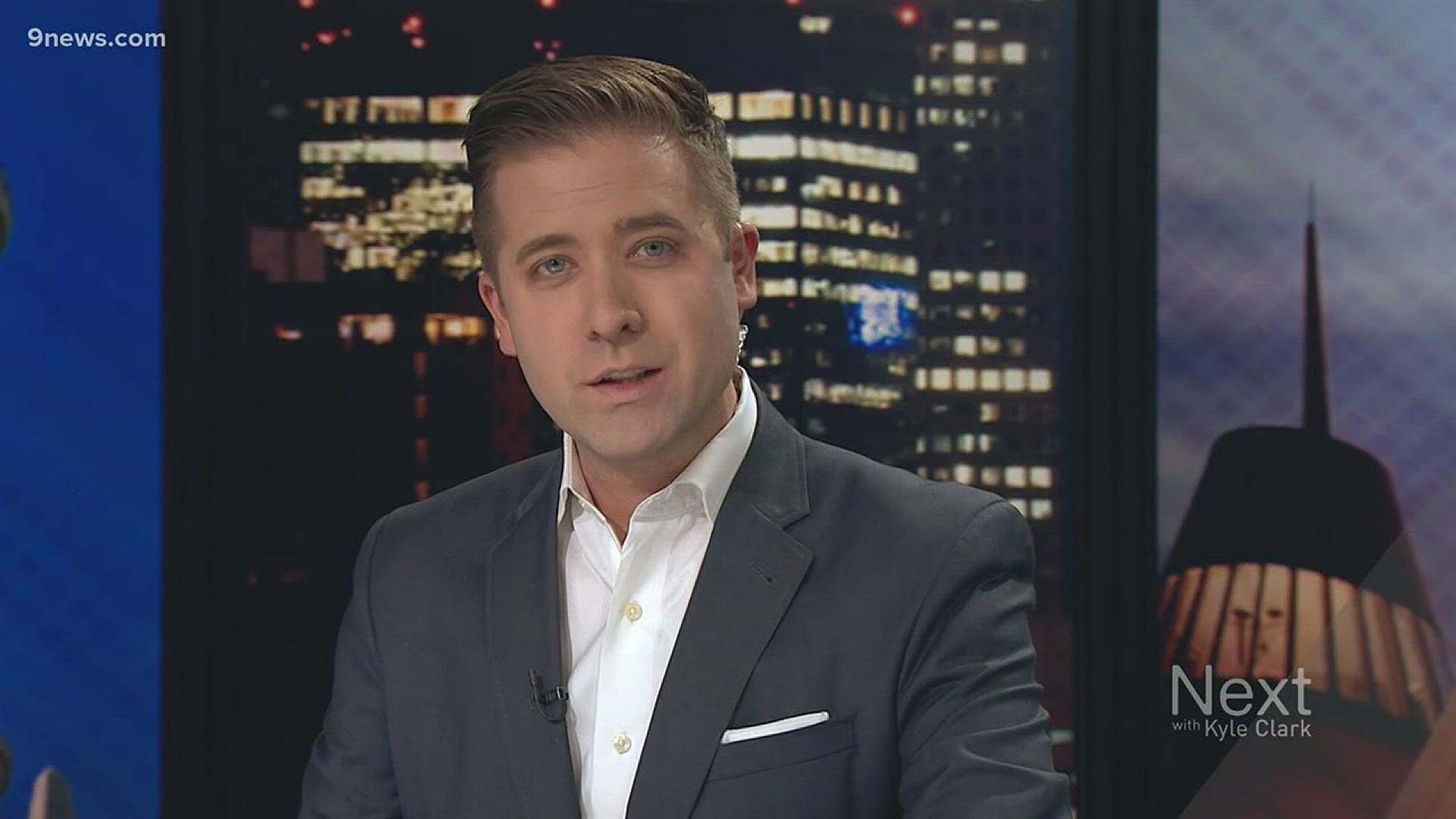DENVER — The Colorado oil and gas industry defeated Proposition 112 in November. It would have moved back drilling from populated areas by a distance industry experts said would cripple oil and gas interests in the state.
The oil and gas industry spent millions to kill Prop 112. The proposition was soundly defeated; it needed 55 percent to pass, 55 percent of people voted against it.
On Friday, state Democrats introduced a bill that would completely change the way oil and drilling would be regulated in the state - taking each old regulation and changing its focus or expanding it.
In addition to creating new guidelines, Senate Bill 19-181 includes a summary of all the proposed changes it would make to the Colorado Oil & Gas Conservation Act. For decades, the bill focused on resource conservation. In 1994, resource interests were married with public health interests. These new changes, however, if implemented, would make the sole focus on public health interests; they would always trump the industry.
2018 ELECTIONS | Prop 112 fails; Buffer zone for oil and gas development will not expand to 2,500 feet
It's important to note this bill was only introduced on Friday. It may change in committee or have amendments added. This is a summary of the bill as it stands on Monday.
Also, before we get too far into it; 9NEWS will continue to look at this bill over the coming days. There is a lot to unpack in this bill.
Under current law, city and county governments in Colorado can only have authority over oil and gas sites if the Colorado Oil and Gas Conservation Commission allows it. Sections 1 and 2 of the bill will repeal this limitation.
READ | Senate Bill 19-181
Section 3 of the bill would then direct the air quality control commission in the state to require an oil and gas operator to install emission monitoring equipment that checks for hazardous air pollutants, methane and volatile organic compounds (like formaldehyde and ethanol).
The next section of the bill would clarify a municipality's land use authority over the sites and allow them to do several more things, including:
- inspect oil and gas facilities
- impose fines for leaks, spills and emissions
- impose fees on operators or owners to cover the costs of regulating, monitoring and permitting said sites
The fifth section of the bill would repeal an oil and gas sites' exemption from city and county noise pollution ordinances.
According to the summary for SB 19-181, the remaining seven sections amend the "Oil and Gas Conservation Act" - a decades-old bill that has had numerous amendments over the years. This would make another.
First, the bill says Colorado's current legal attitude of marrying the interests of oil and gas to the interests of public health and safety will go away. The language saying it's in the public interest to "foster" oil and gas sites in a manner "consistent" with the protection of public health would be removed. In the new version, the public interest is to "regulate" oil and gas sites while "protecting" public health.
Next up in the bill is waste. Section 7 of the bill makes language changes to the legal definition of "waste" when it comes to oil sites and removes strictures imposed on the Colorado Oil and Gas Conservation Commission that required they take into account the "cost-effectiveness and technical feasibility" of actions meant to protect the state's wildlife resources.
Currently, the conservation commission has a nine-member body. Three of those members are industry experts and one has training or experience in wildlife protection. Section 8 of the proposed bill would lower the number of industry experts to one, keep the single wildlife expert, add an environmental expert, a soil conservation expert, a reclamation expert, an active agricultural producer or royalty owner and one member with "substantial" experience in public health.
Section 9 is simple: it would require the director of the Colorado Oil and Gas Conservation Commission to hire two deputy directors.
Section 10 pulls complete oversight control from the conservation commission over oil and gas sites. It would allow the following bodies control over the following parts of oil and gas sites:
The Air Quality Control Commission would be given regulatory control over the air pollution from oil and gas sites.
The Water Quality Control Commission would be given regulatory control over the discharge of water pollutants from oil and gas operations.
The state board of health would be allowed to regulate the disposal of "naturally occurring radioactive materials" from oil and gas sites.
The Solid and Hazardous Waste Commission would be given regulatory control over the disposal of hazardous waste and exploration and production waste from oil and gas operations.
Local governments would be allowed to regulate land use of oil and gas sites.
Instead of one body controlling all sites in the state, six would.
One of the more complicated sections, Section 11, details permitting for oil and gas sites. According to SB-181's language, someone who wants to open up and operate new oil and gas wells currently goes to the conservation commission first and then lets the local city or county government know their intentions.
Section 11 would be changed to say that before a potential operator goes to the commission to request a new site, they must first show proof of either two things: that they got the local government's approval or explain that their local government does not regulate such sites.
In addition, per our reading of Section 11 (we are working to get more confirmation), the commission would be forced to impose a moratorium on issuing new permits until they've received a briefing (at least) of all new proposals or laws that may change the way they operate in 2019. The exact language is as follows:
"Section 11 also specifies that the commission and the director shall not issue a permit until the commission has promulgated every rule required to be adopted by oil and gas bills enacted in 2019 and the rules have become effective."
However, the director of the commission will be able to issue permits if he or she finds that "the permit does not require additional analysis to ensure the protection of public health, safety and welfare or the environment or require additional local government or other state agency consultation."
Right now, the law allows an operator to have insurance coverage of $60,000 on 99 or fewer wells and of $100,000 on 100 or more wells. The new bill would change that completely:
"Section 11 directs the commission to adopt rules that require financial assurance sufficient to provide adequate coverage for all applicable requirements of the Act."
In layman's terms: each operator would be required to have coverage that would be able to pay for every new requirement or previous requirement for his or her oil and gas wells.
Part four of Section 11 focuses on permitting fees. Instead of the current rules that cap fees at $200 or $100, the bill would eliminate the cap and would then require the commission to set new fee rates that would cover its costs.
Current law gives the commission the authority to regulate any and all things related to oil and gas operations to prevent "significant adverse environmental impacts to the extent necessary to protect public health."
Section 11 expands the language a bit. Now the commission will be in charge of:
"[Protecting and minimizing] adverse impacts to public health, safety, and welfare, the environment, and wildlife resources and protecting against adverse environmental impacts on any air, water, soil, or biological resource resulting from oil and gas operations."
In addition to everything else, Section 11 would also require the commission to adopt rules that require an operator - when requesting an oil or gas site near a populated area - to complete analyses on possible alternative locations. The commission will also be required to adopt rules governing following:
- Ensure proper wellhead integrity of all oil and gas production wells
- Allow public disclosure of flowline information
- Evaluate and determine when a deactivated flowline must be inspected before being reactivated
- Evaluate and determine when inactive and shut-in wells must be inspected before being put into production or used for injection.
Current law allows for statutory pooling when it comes to oil and gas sites. Basically, an operator can request the commission issue an order pooling all oil and gas resources in a clearly delineated drilling area. Then, after giving notice and holding a hearing on the matter, the commission can implement a pooling order that would require the owners of oil and gas resources within the drilling area who have NOT consented to drill operations to allow drilling anyway.
Section 12 would now require that the owners of more than 50 percent of the mineral interests that would be pooled to have joined together on an application for the pooling order (instead of just the one or however few).
Section 13's changes would modify the way the commission's environmental response fund is pooled. Currently, the law states the fund can't exceed $6 million. Under the proposed changed, the fund would only be limited in that its coffers can't exceed 50 percent of the commission's total yearly appropriations. Also in Section 13 is the directive that the fund is used "to address environmental response needs." Under the new bill, the fund would be used "to support the operations of the commission and to address environmental response needs."
Section 14 - dictating rules over local governments and oil sites - would be repealed.
For Section 15, the bill would specifically say state agencies and local governments have the authority to regulate oil and gas sites. Also, when there is a conflict between agencies, the more protective choice as far as public health and the environment is concerned would be followed.
Sections 16 and 17 would remain intact - 16 governing applicability and 17 dictating safety.
Supporters of the bill have applauded its focus on public health, detractors worry "needless" regulation will kill a powerful part of Colorado's economy: the oil and gas industry.


